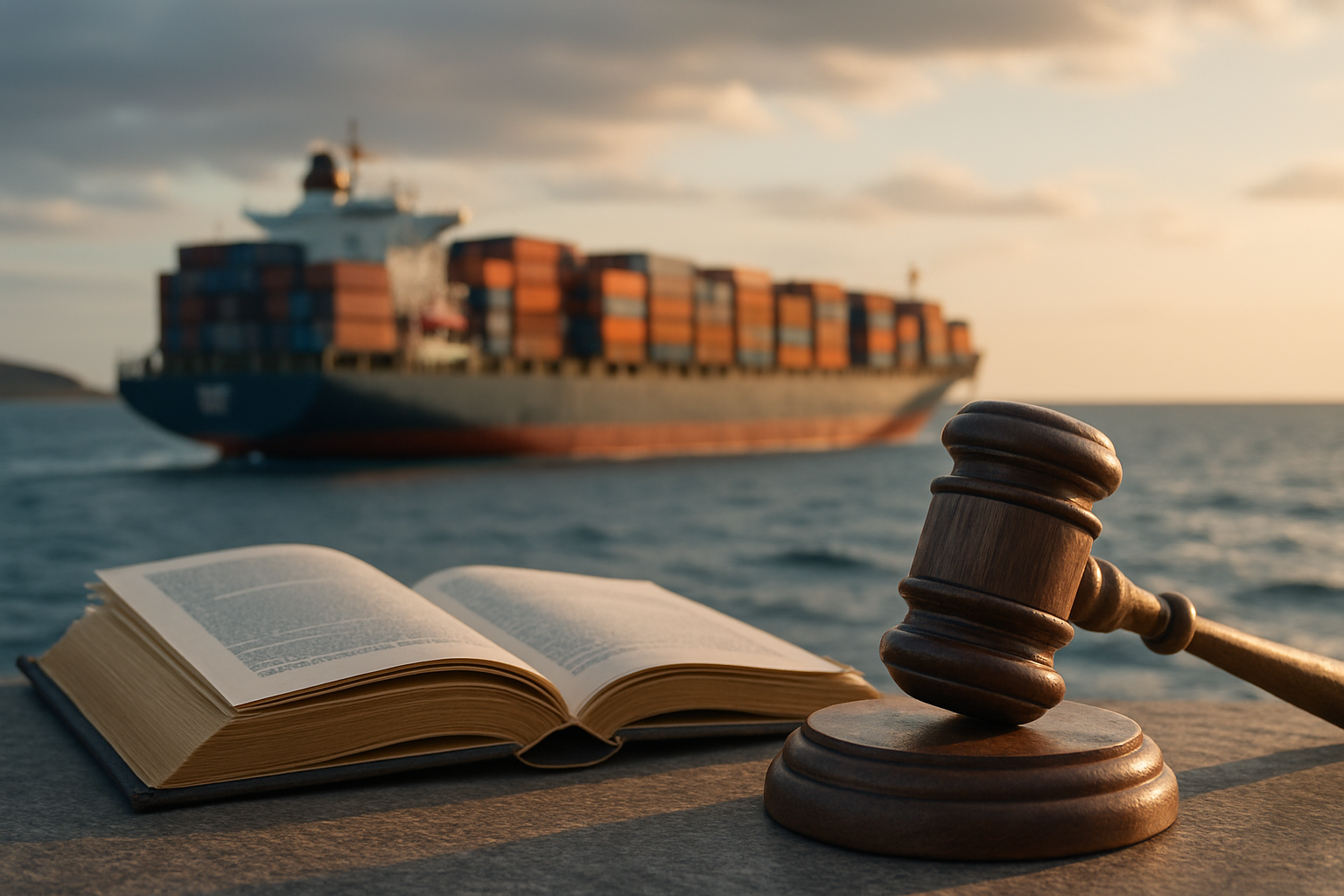Admiralty Law: Navigating the Seas of Maritime Justice
Introduction: Admiralty law, a complex and often overlooked field of jurisprudence, governs the intricate world of maritime activities. This specialized legal domain encompasses everything from shipping disputes to salvage rights, playing a crucial role in global commerce and international relations. As we delve into the depths of admiralty law, we'll explore its unique features, historical significance, and modern-day applications.

In England, the Court of Admiralty was established in the 14th century to handle cases involving maritime matters. This court operated separately from common law courts, developing its own set of rules and procedures. As maritime trade expanded globally, admiralty law evolved to address the complex issues arising from international shipping and commerce.
Jurisdiction and Scope
One of the most distinctive aspects of admiralty law is its unique jurisdiction. Unlike most legal domains that are bound by territorial limits, admiralty law applies to actions that occur on navigable waters, regardless of national boundaries. This expansive reach allows for consistent legal treatment of maritime issues across different countries and regions.
The scope of admiralty law is vast, covering a wide range of maritime activities. It encompasses commercial transactions, such as the carriage of goods by sea, as well as personal injury claims involving sailors or passengers. Admiralty law also deals with maritime liens, salvage operations, and even piracy – a centuries-old problem that continues to plague modern shipping lanes.
Key Principles and Concepts
Admiralty law is governed by several fundamental principles that set it apart from other legal domains. One such principle is the concept of general average, which distributes the costs of sacrifices made for the common good among all parties involved in a maritime venture. This ancient principle ensures that the financial burden of unexpected events at sea is shared fairly.
Another crucial concept in admiralty law is the maritime lien. This powerful legal tool allows claimants to assert their rights against a vessel itself, rather than its owner. Maritime liens can arise from various situations, such as unpaid wages, collision damages, or salvage services rendered. They provide a unique form of security in the often-uncertain world of international shipping.
Modern Challenges and Developments
As global trade continues to expand and new technologies emerge, admiralty law faces several modern challenges. The rise of autonomous vessels, for instance, raises complex questions about liability and responsibility in the event of accidents or damages. Environmental concerns, such as oil spills and marine pollution, have also become increasingly important in admiralty law, leading to the development of new regulations and legal frameworks.
Climate change presents another significant challenge for admiralty law. As Arctic sea routes become more accessible due to melting ice, new legal issues arise concerning navigation rights, resource exploitation, and environmental protection in these sensitive regions. Admiralty courts and lawmakers must adapt to these changing circumstances while maintaining the fundamental principles of maritime justice.
The Role of International Conventions
Given the global nature of maritime activities, international conventions play a crucial role in shaping and standardizing admiralty law across different jurisdictions. The United Nations Convention on the Law of the Sea (UNCLOS), often referred to as the “constitution for the oceans,” provides a comprehensive framework for maritime governance and dispute resolution.
Other important international agreements include the International Convention for the Safety of Life at Sea (SOLAS) and the International Convention for the Prevention of Pollution from Ships (MARPOL). These conventions establish global standards for maritime safety, environmental protection, and other critical aspects of seafaring activities.
Admiralty Law in Practice
In practice, admiralty law cases can be highly complex and often involve multiple jurisdictions. Specialized admiralty courts or divisions within national court systems handle these cases, applying a mix of domestic laws, international conventions, and long-standing maritime customs.
Admiralty lawyers must possess a deep understanding of both legal principles and practical maritime matters. They often work on cases involving ship collisions, cargo disputes, marine insurance claims, and maritime worker injuries. The unique nature of admiralty law requires practitioners to be well-versed in both national and international legal frameworks, as well as the technical aspects of maritime operations.
Conclusion
Admiralty law stands as a testament to the enduring importance of maritime activities in our global society. From its ancient origins to its modern-day applications, this specialized field of law continues to evolve, addressing the complex challenges of international trade, environmental protection, and technological advancements on the high seas. As we navigate the increasingly interconnected waters of the global economy, admiralty law remains an essential guide, ensuring fair and consistent treatment of maritime issues across the world’s oceans.






